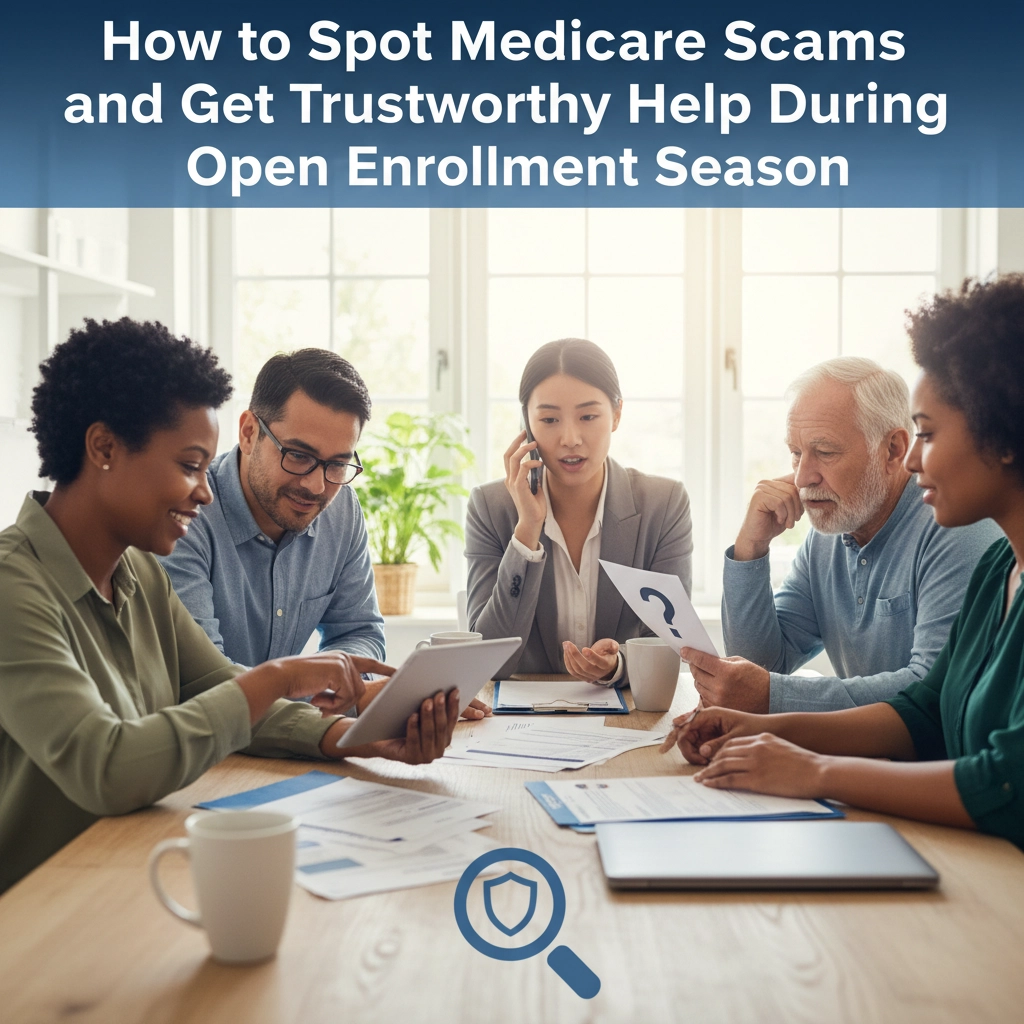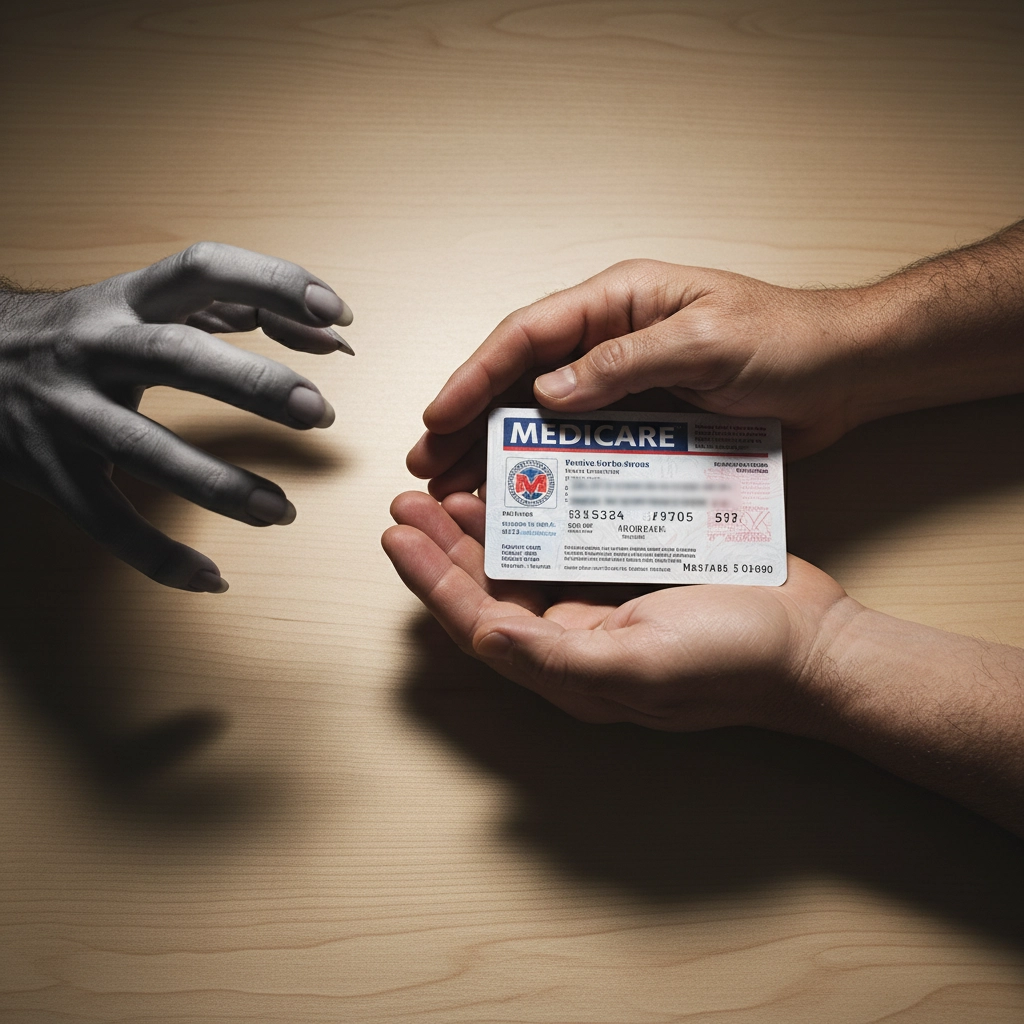How to Spot Medicare Scams and Get Trustworthy Help During Open Enrollment Season

Medicare's Open Enrollment Period runs from October 15 through December 7 each year, and we're right in the thick of it now. While this is an essential time for you to review and potentially change your Medicare coverage, it's also when scammers become most active, targeting vulnerable seniors with sophisticated fraud schemes designed to steal your personal information and hard-earned money.
As your trusted insurance professionals at Borde & Associates, we've been helping families navigate Medicare options for over a decade now, and we've seen firsthand how devastating these scams can be. That's why we're committed to equipping you with the knowledge and resources you need to protect yourself while getting the legitimate Medicare help you deserve.
Understanding the Scope of Medicare Fraud
Medicare fraud costs the system approximately $60 billion annually, and those losses ultimately translate to higher taxes and insurance premiums for everyone. During open enrollment season, scammers ramp up their efforts significantly, knowing that beneficiaries are actively thinking about their coverage and may be more receptive to Medicare-related communications.
The good news is that with proper awareness and the right resources, you can protect yourself and your family from these predatory schemes while still accessing the legitimate help you need to make informed Medicare decisions.

Common Medicare Scams to Watch For During Open Enrollment
Medicare Impersonation Scams represent the most prevalent threat during this season. Fraudsters will call, email, text, or even visit your home claiming to be from Medicare or an organization connected to Medicare. They'll typically request your Medicare number, Social Security number, bank account information, or credit card details for a "new" Medicare card or to "update your information."
Here's what you need to know: Medicare will never contact you unexpectedly to request personal information. Your Medicare card is sent automatically and free of charge, and legitimate Medicare representatives won't pressure you for sensitive information through unsolicited contact.
Medical Equipment and Services Fraud involves scammers offering free medical supplies, equipment, or health services. They might claim you've already been approved for a walker, wheelchair, or other medical device and just need your Medicare number for "processing." Some will even say they need your information for a medical equipment claim you supposedly made but don't remember.
Fake Plan Discount Schemes present too-good-to-be-true offers on prescription drug plans or exclusive Medicare discounts. These scammers create urgency by claiming you must act immediately to avoid losing coverage or missing enrollment deadlines. They'll often request upfront fees or your Medicare number to "secure" these fictional benefits.
Door-to-Door and Hospice Fraud has become increasingly sophisticated, with criminals offering attractive in-home services like free cooking, cleaning, or home health care. What victims don't realize is that they're unknowingly being signed up for hospice services, allowing scammers to bill Medicare fraudulently for extensive medical services.

Red Flags That Signal a Medicare Scam
Your first line of defense is recognizing the warning signs that indicate fraudulent activity. Unsolicited contact requesting personal information should immediately raise red flags. Whether it's a phone call, email, text message, or social media contact claiming to be from Medicare, genuine Medicare representatives will only ask you to verify information if you contact them first.
Don't trust your caller ID. Scammers have become sophisticated at spoofing phone numbers, making it appear as though calls are coming directly from Medicare when they could originate from anywhere in the world. The display showing "Medicare" or an official-looking number doesn't guarantee legitimacy.
Pressure tactics and artificial urgency are hallmarks of fraud. Legitimate Medicare representatives provide clear timelines and give you adequate time to consider your options. Any communication demanding immediate action, threatening loss of benefits, or insisting you decide "right now" is likely fraudulent.
Requests for payment for Medicare cards, services, or processing fees are always scams. Medicare cards are free, and legitimate plan changes don't require upfront payments to unsolicited contacts.
Poor communication quality often reveals fraud attempts. Watch for emails or letters with spelling errors, unfamiliar sender addresses, and generic greetings like "Dear Beneficiary" instead of your actual name.
Protecting Yourself and Your Personal Information
Guard your Medicare number like a credit card. Share it only with trusted healthcare providers, pharmacists, and official representatives when you initiate contact. Never give your Medicare or Social Security number to anyone who contacts you unexpectedly, regardless of how legitimate they may sound.
Verify suspicious contacts independently. If you receive a call or communication that might be legitimate, hang up and call 1-800-MEDICARE (1-800-633-4227) directly using the number from your Medicare card or the official Medicare website. Don't use any phone numbers provided in the suspicious communication.
Monitor your Medicare statements religiously. Keep detailed records of all medical appointments, services, and equipment you receive. Check these against your Medicare Summary Notices or Explanation of Benefits statements. You can access your claims information early by logging into your account at mymedicare.gov.
Research independently before making decisions. Use only official resources like Medicare.gov to research and compare plans. Don't rely solely on information provided through unsolicited contact, even if it seems helpful or legitimate.

Where to Get Trustworthy Medicare Help
1-800-MEDICARE (1-800-633-4227) serves as your primary resource for all Medicare-related questions and concerns. This official helpline operates 24 hours a day, seven days a week, and can help you verify whether communications are legitimate, report suspicious activities, and navigate your enrollment options safely.
Senior Medicare Patrol (SMP) programs operate in every state, staffed by trained volunteers who specialize in helping Medicare beneficiaries detect and avoid scams. SMP volunteers provide free educational resources, including "My Health Care Tracker" tools to help you monitor your Medicare statements effectively. You can locate your local SMP through Medicare.gov or by calling the main Medicare helpline.
Medicare.gov represents the only website you should trust for comparing and enrolling in Medicare plans during open enrollment. Creating an account allows you to access your Medicare statements online, compare plans side-by-side, and find official information without relying on potentially fraudulent sources.
State Health Insurance Assistance Programs (SHIP) provide free, unbiased counseling about Medicare options. These programs are federally funded and operate independently of insurance companies, ensuring you receive objective guidance tailored to your specific needs and circumstances.
At Borde & Associates, we're proud to serve as your trusted Medicare advisors, helping you navigate the complexities of Medicare coverage with personalized service and genuine care. Our experienced team understands the local landscape and can provide the individualized attention you deserve during this critical decision period.

Taking Action to Report Medicare Fraud
If you suspect you've encountered Medicare fraud or have been victimized by scammers, take immediate action. Report suspicious activity by calling 1-800-MEDICARE or using the Centers for Medicare & Medicaid Services' online reporting system. Your vigilance doesn't just protect you: it helps safeguard the entire Medicare system for current and future beneficiaries.
Document everything related to suspected fraud attempts. Keep records of phone numbers, names used, dates and times of contact, and any information requested or provided. This documentation can be invaluable for investigations and may help prevent others from falling victim to similar schemes.
Alert your financial institutions if you've provided banking or credit card information to suspected scammers. Monitor your accounts closely and consider placing fraud alerts or freezes on your credit reports as additional protective measures.
Your Path Forward During Open Enrollment
Remember that Open Enrollment Period continues through December 7, giving you time to make thoughtful decisions about your Medicare coverage. You don't need to rush into anything, despite what scammers might claim about urgent deadlines or limited-time offers.

Take advantage of legitimate resources and trusted professionals who can guide you through your options without pressure or hidden agendas. Whether you're considering Medicare Advantage plans, prescription drug coverage, or supplemental insurance options, working with experienced professionals ensures you receive accurate information tailored to your unique situation.
At Borde & Associates, we're committed to your long-term success and peace of mind. Our comprehensive approach to Medicare planning ensures you understand your options fully and feel confident in your coverage decisions. We believe that informed beneficiaries make the best choices for their health and financial well-being.
Don't let scammers steal your financial security or compromise your Medicare benefits. By staying vigilant, using official resources, and working with trusted professionals, you can navigate Open Enrollment Season safely and successfully. Your Medicare coverage is too important to leave to chance: let us help you make decisions that protect both your health and your financial future.
Blog Tags: #MedicareScams #OpenEnrollment #MedicareFraud #MedicareHelp #SeniorSafety #MedicareTips #InsuranceScams #MedicareBenefits #HealthInsurance #MedicareAdvice #ScamPrevention #MedicarePlanning #TrustedInsurance #MedicareOptions #SeniorProtection

No comments:
Post a Comment